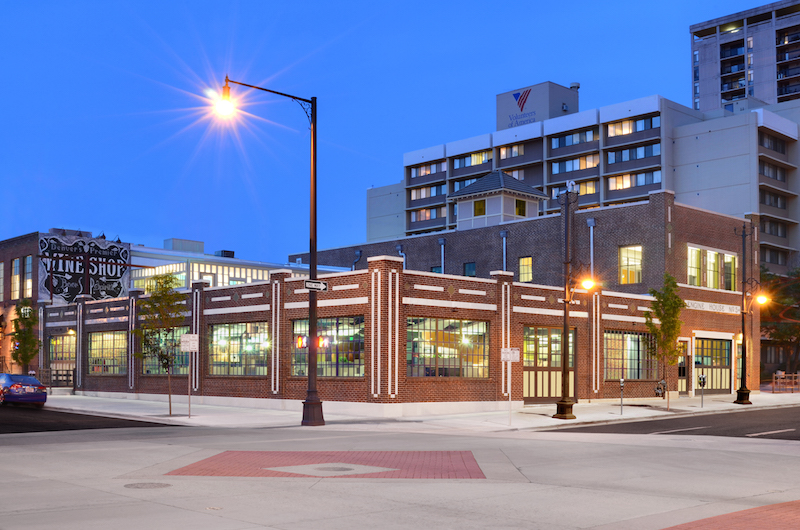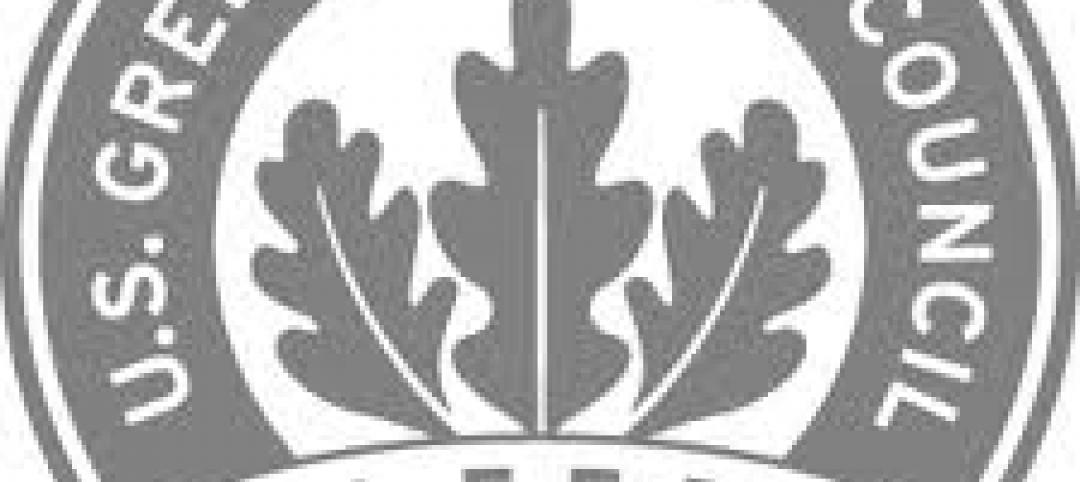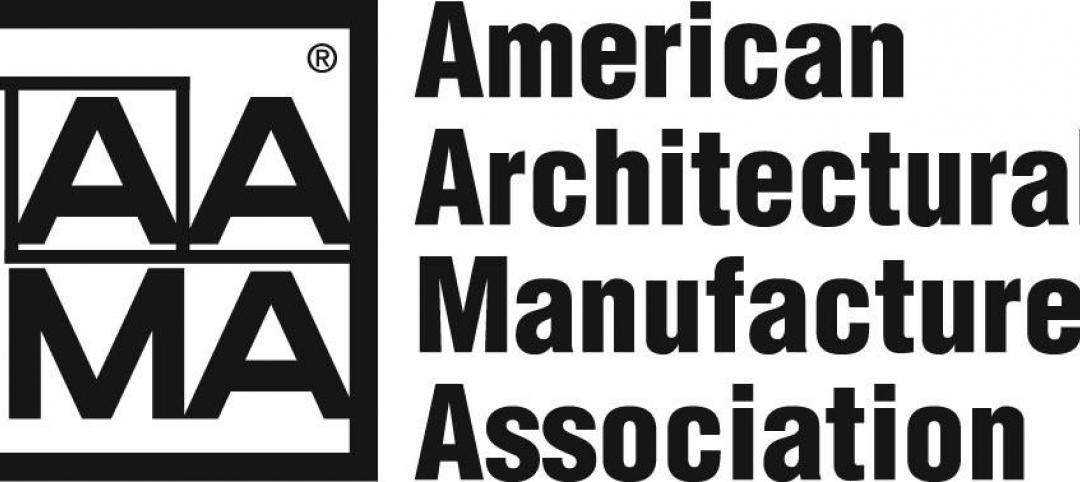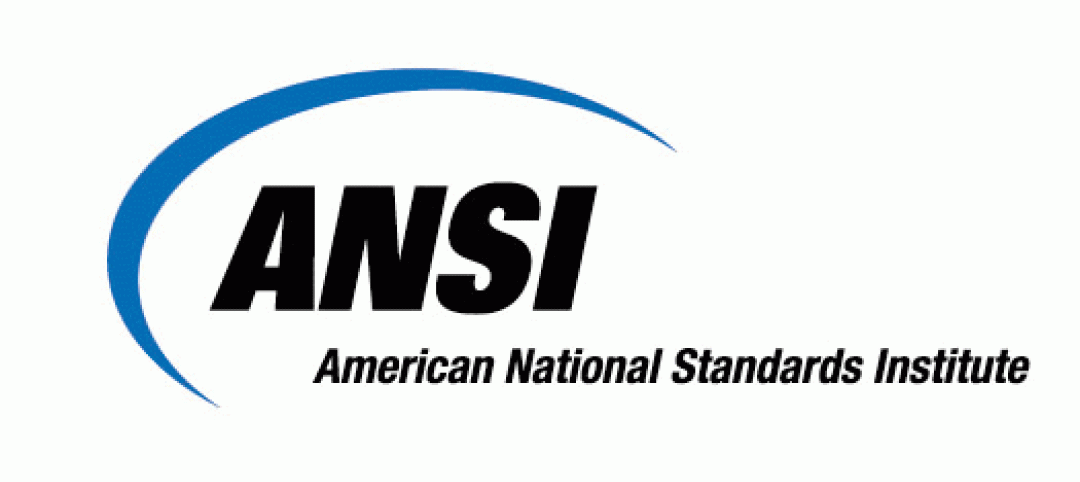The architectural firm Hord Caplan Macht (HCM) recently completed the documentation to verify that its Denver office can meet the standards necessary to be certified under Fitwel, a certification program to support healthier workplaces created by the Centers for Disease Control and Prevention. The Center for Active Design, Fitwel's oerator and third-party certifier, launched in May 2016 and began rolling out to developers and the AEC community last fall.
Working with experts in public health and design, CDC spent five years developing and testing its Fitwel scorecard. The General Services Administration piloted the program in 89 of its buildings.
HCM, which has also provided verification documents for its offices in Alexandria, Va., and Baltimore, is one of five Fitwel Champions that have committed to certifying more than 50 buildings in aggregate. The other Champions include the CDC, which is also Fitwel’s research and evaluation lead; EYP, Integral Group, and Menkes Development.
Perkins+Will was the first company to adopt Fitwel’s standards for all 11 of the firm’s North American offices, which P+W expects will be certified by 2018.
HCM has been in its 13,000-sf Denver office, a former fire station built in the 1920s, since 2010. The office currently has 72 employees. Ara Massey, that office’s Sustainability Design Manager, tells BD+C that the firm measured its three offices against 63 Fitwel strategies in seven health impact categories to establish health and wellness baselines from which it could work toward certification. The evaluation and documentation took about 40 man-hours, she estimates.
The Center for Active Design promotes Fitwel as more “business friendly” than other certification programs. And Massey confirmed that Fitwel gives companies the flexibility to prioritize which standards to align its operations with “without a lot of cost.”
HCM has already successfully integrated many health-promoting features within its offices, including providing staff with fresh fruit and vegetables and locating in areas with high WalkScores.
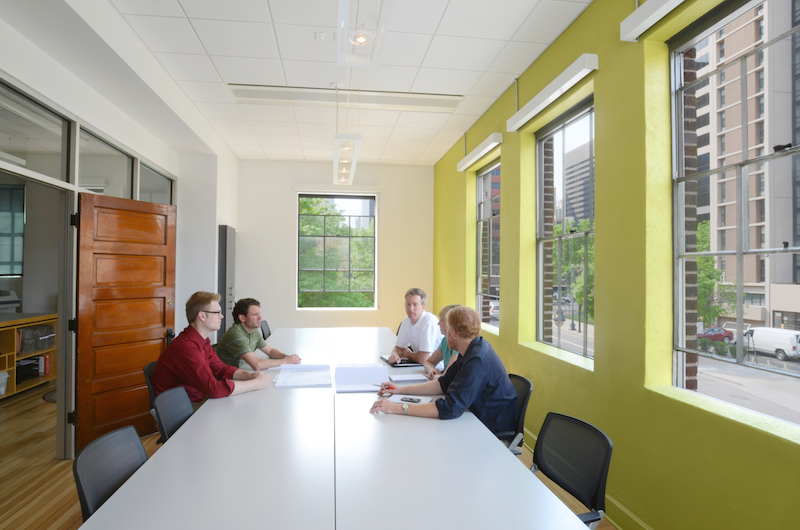
Hord Caplan Macht's Denver office includes meeting spaces with lots of daylight. Image: Courtesy HCM
However, one thing that surprised Massey was the emphasis that Fitwel’s scorecard places on “lactation rooms” for new Moms returning to the workforce after giving birth. “That was a real eye opener for us,” says Massey.
The next step toward Fitwel certification is the review process, and Massey expects a lot of give and take between her firm and the Center for Active Design to determine how to meet the criteria levels that HCM is willing to adopt.
Now bitten by the wellness bug, HCM also plans to incorporate Fitwel’s wellness standards into its designs for other clients’ projects “as much as possible,” says Massey. “Particularly active design.”
Arup, Structure Tone embrace wellness
While it’s still too early to say definitively, it appears that the wellness movement is slowly catching on with developers and AEC firms. For example, in late December, Arup opened a 16,333-sf office at 60 State Street in Boston, designed by Dyer Brown Architects, which is targeting the Silver level of the International WELL Building Institute’s WELL Building Standard, as well as the Platinum level of LEED v.4.
Structure Tone’s 82,000-sf corporate headquarters in New York City recently became the first project in that metro to receive Well Building Standard certification. It earned a Silver-level designation by installing more efficient mechanicals and lighting that maintains harmony with employees’ circadian rhythms. The office also offers point-of-access water filters, access to healthy foods, and discounts on bike-share and fitness center memberships.
Last year, Structure Tone formed a partnership with Delos, the real estate and tech firm that established the WELL Building Standard, in which Structure Tone agreed to accredit 150 employees through the WELL Accredited Professional program.
Related Stories
| Dec 7, 2012
Tokyo’s Green Building Program has reduced power consumption by 20%
Tokyo city officials calculate that its Green Building Program reduced energy consumption by 20% since its inception, a statistic they identify as the reason the power stayed on during the 2011 earthquake.
| Dec 7, 2012
New flexible options make achieving LEED certification easier on projects outside the US
A new set of Global Alternative Compliance Paths, or Global ACPs, are now available for all commercial projects pursuing LEED green building certification using the 2009 versions of the rating systems.
| Nov 29, 2012
AGC offers stormwater compliance webinar
An effective document management system is necessary to stay in compliance with new and forthcoming stormwater runoff requirements, says the Associated General Contractors of America.
| Nov 29, 2012
Government policies help accelerate adoption of green building
Green procurement policies or green building mandates can help accelerate the adoption of green building practices, according to research by Timothy Simcoe and Michael Toffel.
| Nov 26, 2012
How to boost resilient systems that are sustainable
Cities of the future can be both more resilient and more sustainable by promoting strategies that include solar power and green roofs, programs that minimize demand for energy, rain gardens, and permeable pavement.
| Nov 26, 2012
Developer of nation’s first LEED platinum skyscraper focuses on carbon reduction
The Durst Organization, the developer of the first LEED platinum certified skyscraper in the country, says it will not seek LEED certification for its residential pyramid planned for New York’s West 57th Street.
| Nov 16, 2012
AAMA publishes quality assurance guidelines for Polyamide Thermal Barriers
The American Architectural Manufacturers Association (AAMA) has published QAG-2-12, Voluntary Quality Assurance Processing Guide for Polyamide Thermal Barriers.
| Nov 16, 2012
New ANSI/BIFMA standards developed for educational seating
The American National Standards Institute (ANSI) has approved the newly developed safety and performance standard for educational seating: ANSI/BIFMA X6.1-2012—the first of its kind.
| Nov 16, 2012
Green building councils in 62 countries expect 60% of their work to be green by 2015
More than half of the respondents to a survey of members of the Green Building Council in 62 countries expect green projects to comprise 60% of their work by 2015.


